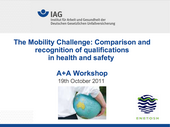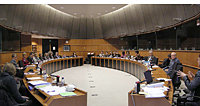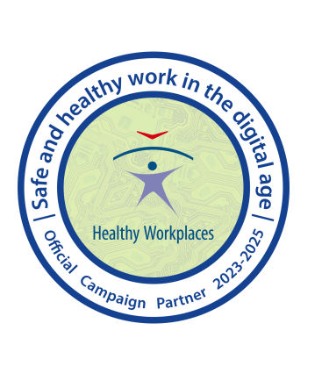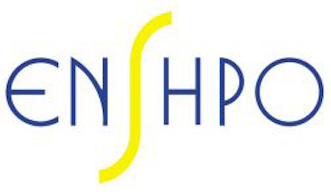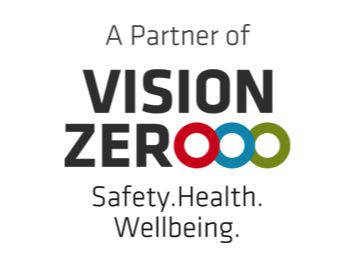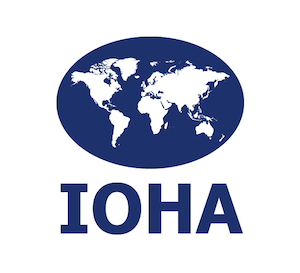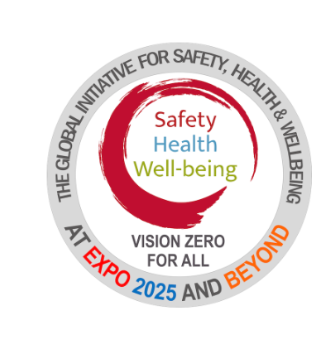Sub-Directorate General for Health and Safety at Work, Ministry of Enterprise and Labour of the Government of Catalonia
23. Jan 2012 /
The Mobility Challenge: Comparison and recognition of qualifications in health and safety in Europe
02. Jan 2012 /
New network member from Russia
20. Dec 2011 /
26 November 2010, European Parliament, Brussels
17. Dec 2011 /
Press release By the European Transport Safety Council
30. Nov 2011 /
Report of the event available online
25. Nov 2011 /
New members in our network
22. Nov 2011 /
Read more … German Social Accident Insurance Institution for the public sector in Hesse
„Prevention of occupational accidents, occupational diseases and work-related health risks of apprentices and young employees in SMEs“
22. Nov 2011 /

